Why Is the Possibility of Revising Iran’s Nuclear Doctrine Raised
Strategic Council Online – Note: Iran has done more than its share for the nuclear non-proliferation regime.
Strategic Council Online – Note: Iran has done more than its share for the nuclear non-proliferation regime.
Strategic Council Online: The President of the Strategic Council on Foreign Relations stated: “The US State Department spokesperson, after my interview with Al Jazeera, reiterated their past remarks, stating that they won’t allow Iran to build nuclear weapons, but ultimately said diplomacy is the best approach. Yes, we too prefer diplomacy since based on the Fatwa of our Supreme Leader are not for nuclear weapons; rather, we are advocates of diplomacy to make the Middle East a nuclear-free region. But, in case the Israeli regime threatens us with nuclear weapons, we surely cannot sit idle and wait for permission from others.”
Strategic Council Online – Opinion: The strategic Strait of Bab al-Mandab and the Red Sea have recently faced serious problems and crises due to the Gaza war. This is because of the protectionist approach of the Yemeni army forces toward Palestine, which, since the beginning of the Israeli regime’s attacks on the Gaza Strip, has included attacks on ships bound for or from the origin of the regime in the Red Sea.
They said they will continue their attacks until the Israeli regime’s military aggression in the Gaza Strip ends. The United States, as the most important supporter of the Israeli regime, was the first country to respond to this policy of Yemeni army forces and tried to form a global coalition to counter these attacks under the cover of supporting freedom of navigation, which, of course, failed because of conflicts of interests of Western countries and ended in the actions of the US and British attacks on positions in Yemen. Of course, although European countries were not seriously involved in the American coalition, they have numerous and complex interests in this inflammatory, and as a result, have adopted a particular and independent approach.
Dr. Mohammad Mehdi Mazaheri – University Professor
Strategic Council Online – Interview: An expert on regional issues said Qatari authorities will definitely resist Western pressure to expel Hamas leaders from their territory, and probably the United States will not move towards a zero-hundred equation in this regard because if the Hamas leaders remain in Qatar, which is an ally of the United States, is better than moving to a country outside the power of the United States to exert pressure.
Strategic Council Online – Opinion: Student protests in America take on new dimensions every day.
Because the university enjoys higher public trust and social capital than other civil and social institutions and is, therefore, more effective, the current protests put the U.S. government in a “difficult situation” that is clear in the statements of current and former U.S. officials.
Hamid Khoshayand – International Affairs Expert
Strategic Council Online: The 3rd Iranian-Arab Dialogue Conference, titled “For Cooperation and Interaction,” will be inaugurated on April 23rd in Tehran, hosted by the Strategic Council on Foreign Relations.
Strategic Council Online – Interview: An expert on Caucasus issues said that Swedish Foreign Minister Tobias Billström recently announced that EU states plan to include the ban on the supply of liquefied natural gas (LNG) in the sanctions against Russia.
Strategic Council Online—Interview: An expert on strategic issues said: The US Navy has put a project on the agenda to convert surplus oil platforms into mobile missile defense bases in the Pacific Ocean and face China’s threats. These platforms are supposed to be deployed in response to China’s growing missile threats in the Pacific region. Platforms converted into missile defense bases are expected to play an important role in increasing US air defense capabilities and assisting in the country’s strike missions.

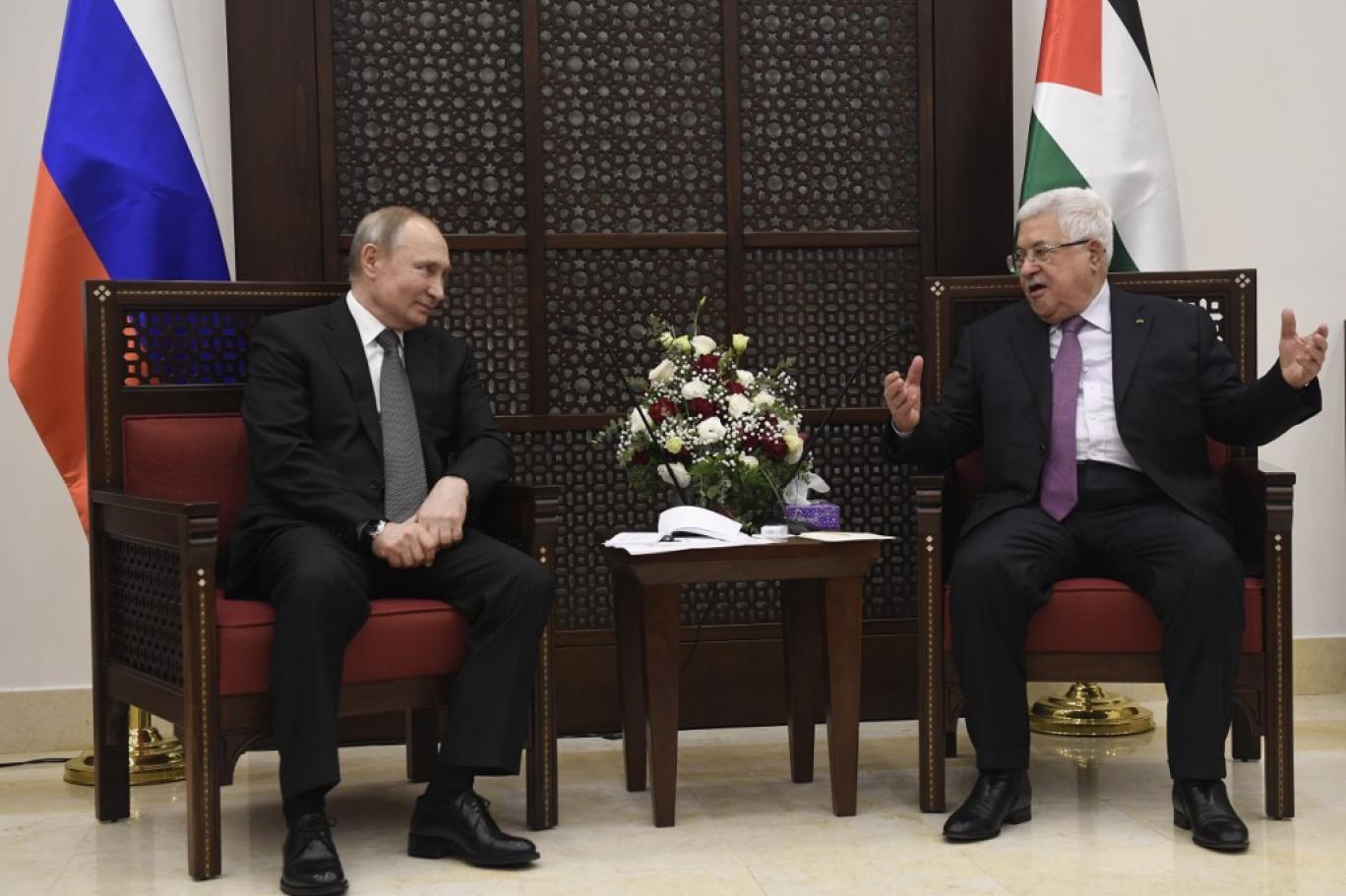
Strategic Council Online – According to a decree issued by Mahmoud Abbas, President of the Palestinian Authority, the Palestinian elections are scheduled to be held in three stages in 2021. According to the decree, for the Palestinian Legislative Council (Parliament) the elections will be held on May 22, for the president of the Palestinian Authority on July 31, and for the Palestinian National Council on August 31, 2021. The results of the elections for the Palestinian Legislative Assembly will be the first stage in the formation of the Palestinian National Council, which will be completed after the elections in accordance with the statute of the Palestine Liberation Organization (PLO) and national reconciliation. This is an important and effective step towards establishing unification in Palestine. Announcement of the exact date for the election has been accompanied by movements in the diplomatic arena.
Mahmoud Fazeli – Analyst of international affairs
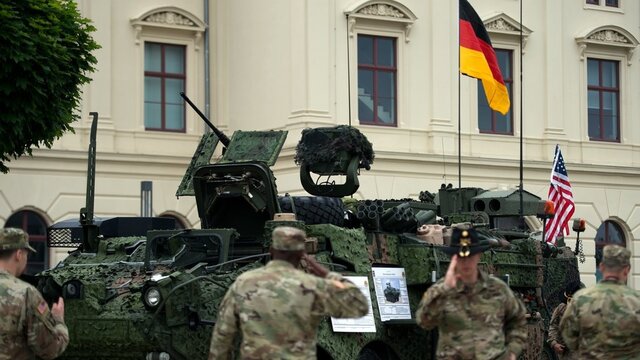
Strategic Council Online – In July 2020, former US Secretary of Defense Mark Esper presented a plan to reduce the number of US troops in Germany by 12,000. The majority of the troops, estimated at about 6,400, should return to the United States, while about 5,600 troops would remain in Europe, based in Belgium and Italy, and several thousand would travel on US-European rotation plans. The headquarters of the United States European Command (EUCOM), as well as the US Army Special Operations Command in Europe, will be moved from Stuttgart in Germany to Belgium. The plan reduced the number of US troops stationed in Germany from 36,000 to 24,000. Based on US claim, the measure would “strengthen NATO”, “deter Russia” and “reassure US allies”. Even some US analysts have called the move a “revenge” against Merkel.
Mahmoud Fazeli – Expert on International Affairs
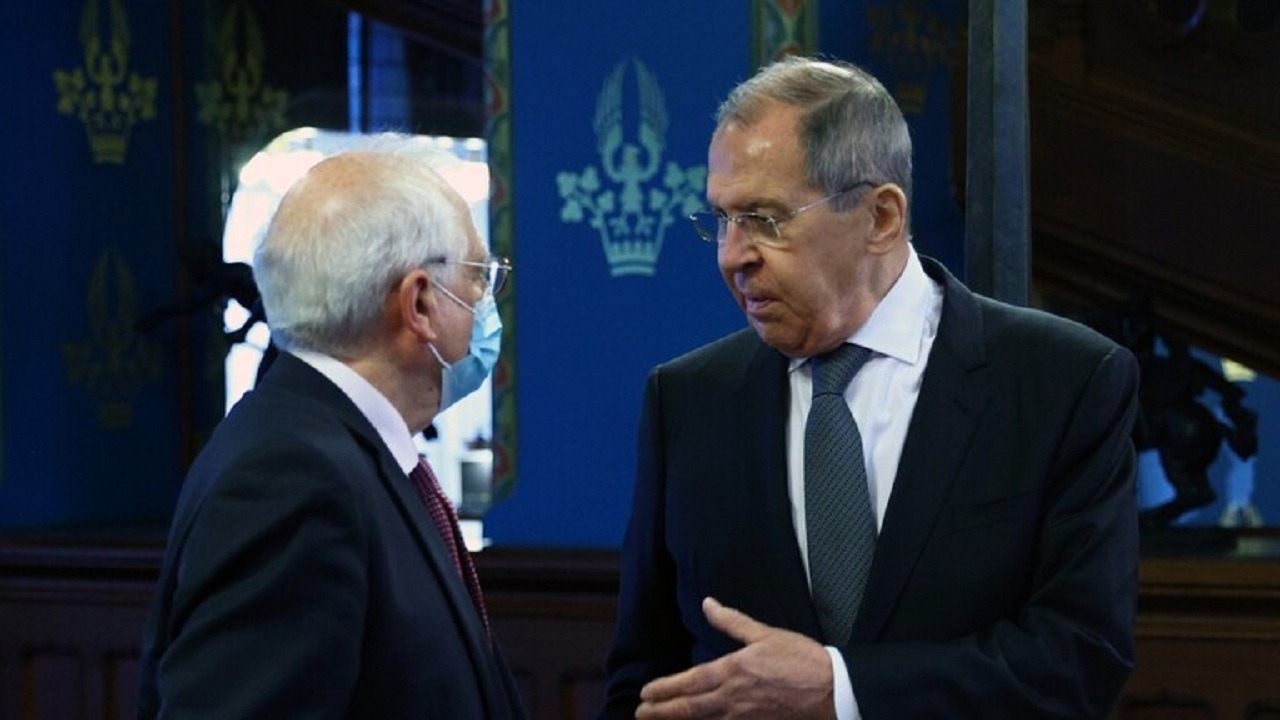
Strategic Council Online—Opinion: The relations between Moscow and the European Union has reached its lowest since the Cold War after developments in 2014 which resulted in the accession of Crimea to the Russian soil, Russian intervention in the civil war of Syria, alleged interference of Russia in the 2016 US presidential elections which resulted in the victory of Donald Trump and ultimately allegations to poison Alexi Navalny the harsh Kremlin critic and his detention of imposition of sanctions.
Mahmood Fazeli-expert of international issues

Strategic Council Online – The US methods and incentives to sell arms to West Asia are more in line with building business for defense contractors than building security in West Asia.
Mahmoud Fazeli – Expert on international affairs
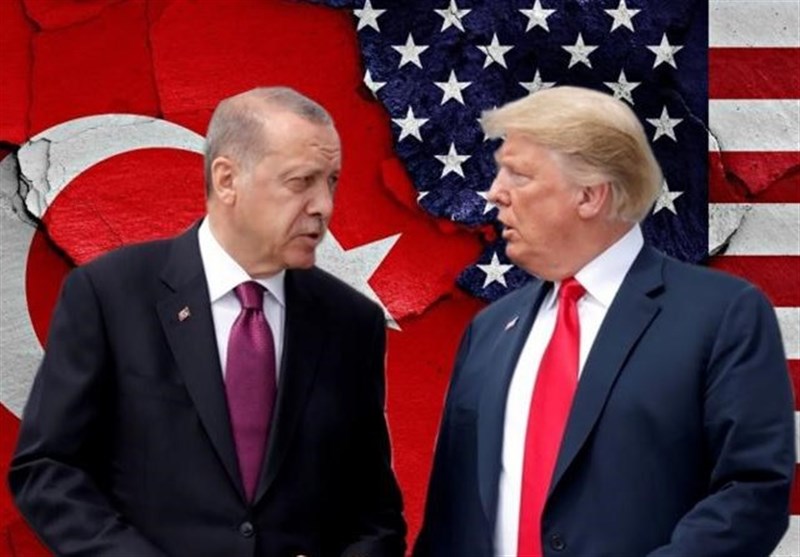
Strategic Council Online—Editorial: Due to consciously cooperation with Russian arms company Rosoboronexport and the purchase of the S-400 missile defense systems, Turkey has gone under US sanctions of CAATSA as Washington does not tolerate interaction with Russia in military domains by other countries. The purchase of S-400 missile defense systems by Turkey has endangered the safety of the US military personnel and technology and would provide access for Russia to the armed forces and defense industries of Turkey. The main goal of US sanctions on Turkey is to prevent Russia from reaping huge financial gains and accessing and impacting the NATO defense systems. US Foreign Secretary Mike Pompeo has asked Turkey to resolve the issue of S-400 with long-term cooperation in the defense sector and adapt once again itself with the rules of NATO and the purchase of arms compatible with this military alliance treaty.
Mahmoud Fazeli, expert of international issues
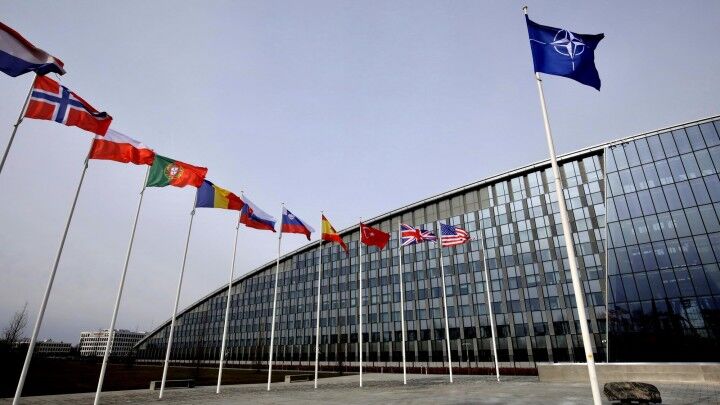
Strategic Council Online—Editorial: With Joe Biden going to the oval office in the White House next January, NATO is hoping to re-establish warm relations between the US and Europe after the end of the Trump tenure, and the presence of Biden as the President of the United States would increase hopes for the amelioration of trans-Atlantic relations. NATO Secretary-General Jens Stoltenberg announced an extraordinary session of the NATO Summit at the beginning of 2021 with the participation of Joe Biden after he assumes power in Washington. Many in Europe are waiting for fundamental changes in NATO after the remarks of the French president who described NATO as facing brain death—something suggestive of the depth of internal differences in this military alliance. Paris is also demanding a revision in the activities and objectives of NATO as a military coalition organization.
Mahmoud Fazeli, expert of European affairs
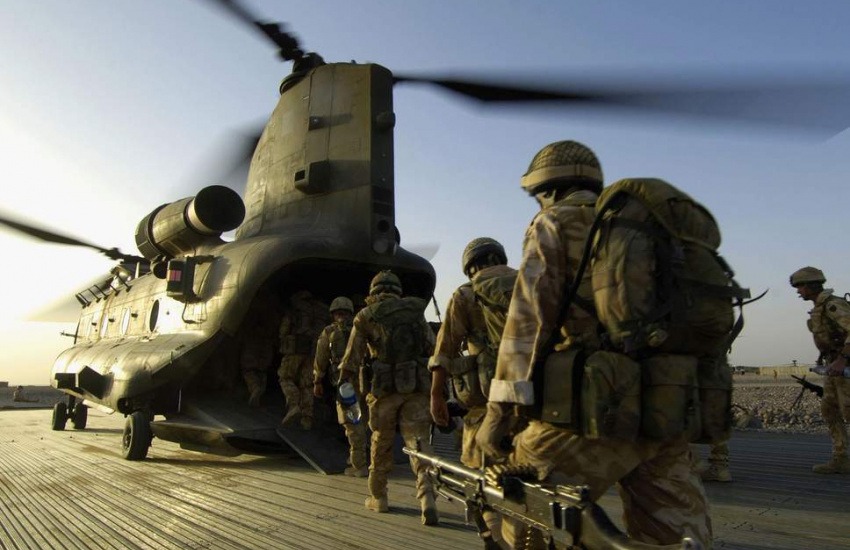
Strategic Council Online – Despite warnings, Ronald Trump intends to reduce the number of American troops from Afghanistan and Iraq ahead of the deadline. He wants to be still influential in foreign and security policy, and intends to constrain his successor, Joe Biden. Withdrawal of US troops from Iraq and Afghanistan, without coordination and acceptance of the responsibility, could have dangerous consequences for the region as well as for the European allies of the US.
Mahmoud Fazeli – Expert on International Affairs
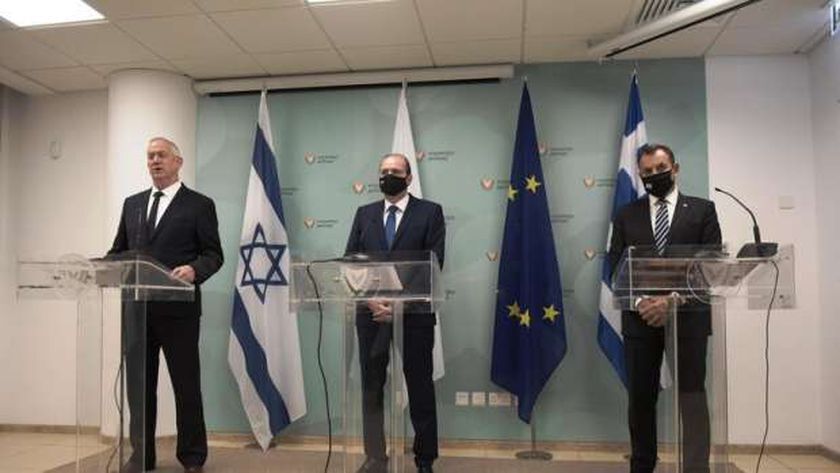
Strategic Council Online – The tripartite meeting of Defense Ministers of Greece Panagiotopoulos, of Cyprus Charalambos Petrides, and of Israel Gantz, was held in Nicosia. Enhancing the interoperability of the Greek, Cypriot and Israeli armed forces and making full use of each other’s relative resources and advantages in areas of mutual interest, such as common training programs, military exercises, military intelligence sharing, maritime security and cybersecurity, were announced to be the common goal of the three sides. The cooperation, as they say, will help better prepare their troops, help create more jobs and boost security.
Mahmoud Fazeli – Expert on Europe Affairs

Strategic Council Online—Opinion: The referendum on a new constitution for Algeria was held on the first of October 2020 with the participation of political parties such as Talae al-Horriat (the third party of presidential elections of 2019) and Jibhat ul-Mustaqbal (the fifth party) and the opposition of Islamist parties such as Movement of Society for Peace (known as HAMAS), the Algerian Labors Party and the Algerian Justice and Development Front. In the referendum on Algeria’s new constitution, only 23.84 per cent of the people voted for further change and amendments in the governing rules and administration. The draft text of the new constitution was approved with the yes vote of 66 per cent of the participants while 33 per cent opposed it. This is while 76 per cent of the eligible voters did not participate in the referendum, encouraging the leaders of some of Algeria’s political parties to nullify the plebiscite.
Mahmoud Fazeli—expert of international issues
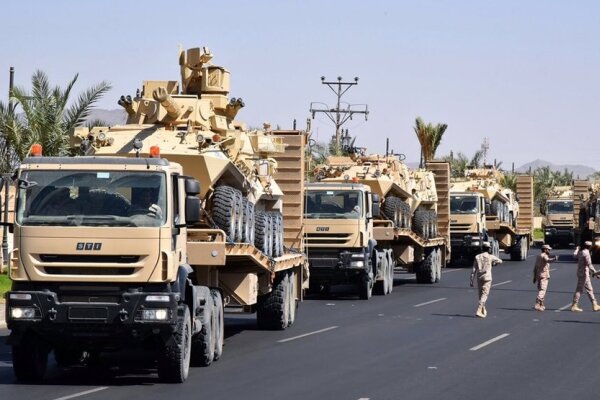
Strategic Council Online—Opinion: Military aggression continues against Yemen while countries such as the United States, Germany, United Kingdom, France and Canada are accomplice to the crimes committed against the world’s most impoverished country of the region through the continued sale of arms and intelligence and logistical supports provided to Saudi Arabia.
Mahmoud Fazeli—Expert of European issues
Strategic Council Online – Note: Iran has done more than its share for the nuclear non-proliferation regime.
Strategic Council Online: The President of the Strategic Council on Foreign Relations stated: “The US State Department spokesperson, after my interview with Al Jazeera, reiterated their past remarks, stating that they won’t allow Iran to build nuclear weapons, but ultimately said diplomacy is the best approach. Yes, we too prefer diplomacy since based on the Fatwa of our Supreme Leader are not for nuclear weapons; rather, we are advocates of diplomacy to make the Middle East a nuclear-free region. But, in case the Israeli regime threatens us with nuclear weapons, we surely cannot sit idle and wait for permission from others.”
Strategic Council Online – Opinion: The strategic Strait of Bab al-Mandab and the Red Sea have recently faced serious problems and crises due to the Gaza war. This is because of the protectionist approach of the Yemeni army forces toward Palestine, which, since the beginning of the Israeli regime’s attacks on the Gaza Strip, has included attacks on ships bound for or from the origin of the regime in the Red Sea.
They said they will continue their attacks until the Israeli regime’s military aggression in the Gaza Strip ends. The United States, as the most important supporter of the Israeli regime, was the first country to respond to this policy of Yemeni army forces and tried to form a global coalition to counter these attacks under the cover of supporting freedom of navigation, which, of course, failed because of conflicts of interests of Western countries and ended in the actions of the US and British attacks on positions in Yemen. Of course, although European countries were not seriously involved in the American coalition, they have numerous and complex interests in this inflammatory, and as a result, have adopted a particular and independent approach.
Dr. Mohammad Mehdi Mazaheri – University Professor
Strategic Council Online – Interview: An expert on regional issues said Qatari authorities will definitely resist Western pressure to expel Hamas leaders from their territory, and probably the United States will not move towards a zero-hundred equation in this regard because if the Hamas leaders remain in Qatar, which is an ally of the United States, is better than moving to a country outside the power of the United States to exert pressure.
Strategic Council Online – Opinion: Student protests in America take on new dimensions every day.
Because the university enjoys higher public trust and social capital than other civil and social institutions and is, therefore, more effective, the current protests put the U.S. government in a “difficult situation” that is clear in the statements of current and former U.S. officials.
Hamid Khoshayand – International Affairs Expert
Strategic Council Online: The 3rd Iranian-Arab Dialogue Conference, titled “For Cooperation and Interaction,” will be inaugurated on April 23rd in Tehran, hosted by the Strategic Council on Foreign Relations.
Strategic Council Online – Interview: An expert on Caucasus issues said that Swedish Foreign Minister Tobias Billström recently announced that EU states plan to include the ban on the supply of liquefied natural gas (LNG) in the sanctions against Russia.
Strategic Council Online—Interview: An expert on strategic issues said: The US Navy has put a project on the agenda to convert surplus oil platforms into mobile missile defense bases in the Pacific Ocean and face China’s threats. These platforms are supposed to be deployed in response to China’s growing missile threats in the Pacific region. Platforms converted into missile defense bases are expected to play an important role in increasing US air defense capabilities and assisting in the country’s strike missions.


Strategic Council Online – According to a decree issued by Mahmoud Abbas, President of the Palestinian Authority, the Palestinian elections are scheduled to be held in three stages in 2021. According to the decree, for the Palestinian Legislative Council (Parliament) the elections will be held on May 22, for the president of the Palestinian Authority on July 31, and for the Palestinian National Council on August 31, 2021. The results of the elections for the Palestinian Legislative Assembly will be the first stage in the formation of the Palestinian National Council, which will be completed after the elections in accordance with the statute of the Palestine Liberation Organization (PLO) and national reconciliation. This is an important and effective step towards establishing unification in Palestine. Announcement of the exact date for the election has been accompanied by movements in the diplomatic arena.
Mahmoud Fazeli – Analyst of international affairs

Strategic Council Online – In July 2020, former US Secretary of Defense Mark Esper presented a plan to reduce the number of US troops in Germany by 12,000. The majority of the troops, estimated at about 6,400, should return to the United States, while about 5,600 troops would remain in Europe, based in Belgium and Italy, and several thousand would travel on US-European rotation plans. The headquarters of the United States European Command (EUCOM), as well as the US Army Special Operations Command in Europe, will be moved from Stuttgart in Germany to Belgium. The plan reduced the number of US troops stationed in Germany from 36,000 to 24,000. Based on US claim, the measure would “strengthen NATO”, “deter Russia” and “reassure US allies”. Even some US analysts have called the move a “revenge” against Merkel.
Mahmoud Fazeli – Expert on International Affairs

Strategic Council Online—Opinion: The relations between Moscow and the European Union has reached its lowest since the Cold War after developments in 2014 which resulted in the accession of Crimea to the Russian soil, Russian intervention in the civil war of Syria, alleged interference of Russia in the 2016 US presidential elections which resulted in the victory of Donald Trump and ultimately allegations to poison Alexi Navalny the harsh Kremlin critic and his detention of imposition of sanctions.
Mahmood Fazeli-expert of international issues

Strategic Council Online – The US methods and incentives to sell arms to West Asia are more in line with building business for defense contractors than building security in West Asia.
Mahmoud Fazeli – Expert on international affairs

Strategic Council Online—Editorial: Due to consciously cooperation with Russian arms company Rosoboronexport and the purchase of the S-400 missile defense systems, Turkey has gone under US sanctions of CAATSA as Washington does not tolerate interaction with Russia in military domains by other countries. The purchase of S-400 missile defense systems by Turkey has endangered the safety of the US military personnel and technology and would provide access for Russia to the armed forces and defense industries of Turkey. The main goal of US sanctions on Turkey is to prevent Russia from reaping huge financial gains and accessing and impacting the NATO defense systems. US Foreign Secretary Mike Pompeo has asked Turkey to resolve the issue of S-400 with long-term cooperation in the defense sector and adapt once again itself with the rules of NATO and the purchase of arms compatible with this military alliance treaty.
Mahmoud Fazeli, expert of international issues

Strategic Council Online—Editorial: With Joe Biden going to the oval office in the White House next January, NATO is hoping to re-establish warm relations between the US and Europe after the end of the Trump tenure, and the presence of Biden as the President of the United States would increase hopes for the amelioration of trans-Atlantic relations. NATO Secretary-General Jens Stoltenberg announced an extraordinary session of the NATO Summit at the beginning of 2021 with the participation of Joe Biden after he assumes power in Washington. Many in Europe are waiting for fundamental changes in NATO after the remarks of the French president who described NATO as facing brain death—something suggestive of the depth of internal differences in this military alliance. Paris is also demanding a revision in the activities and objectives of NATO as a military coalition organization.
Mahmoud Fazeli, expert of European affairs

Strategic Council Online – Despite warnings, Ronald Trump intends to reduce the number of American troops from Afghanistan and Iraq ahead of the deadline. He wants to be still influential in foreign and security policy, and intends to constrain his successor, Joe Biden. Withdrawal of US troops from Iraq and Afghanistan, without coordination and acceptance of the responsibility, could have dangerous consequences for the region as well as for the European allies of the US.
Mahmoud Fazeli – Expert on International Affairs

Strategic Council Online – The tripartite meeting of Defense Ministers of Greece Panagiotopoulos, of Cyprus Charalambos Petrides, and of Israel Gantz, was held in Nicosia. Enhancing the interoperability of the Greek, Cypriot and Israeli armed forces and making full use of each other’s relative resources and advantages in areas of mutual interest, such as common training programs, military exercises, military intelligence sharing, maritime security and cybersecurity, were announced to be the common goal of the three sides. The cooperation, as they say, will help better prepare their troops, help create more jobs and boost security.
Mahmoud Fazeli – Expert on Europe Affairs

Strategic Council Online—Opinion: The referendum on a new constitution for Algeria was held on the first of October 2020 with the participation of political parties such as Talae al-Horriat (the third party of presidential elections of 2019) and Jibhat ul-Mustaqbal (the fifth party) and the opposition of Islamist parties such as Movement of Society for Peace (known as HAMAS), the Algerian Labors Party and the Algerian Justice and Development Front. In the referendum on Algeria’s new constitution, only 23.84 per cent of the people voted for further change and amendments in the governing rules and administration. The draft text of the new constitution was approved with the yes vote of 66 per cent of the participants while 33 per cent opposed it. This is while 76 per cent of the eligible voters did not participate in the referendum, encouraging the leaders of some of Algeria’s political parties to nullify the plebiscite.
Mahmoud Fazeli—expert of international issues

Strategic Council Online—Opinion: Military aggression continues against Yemen while countries such as the United States, Germany, United Kingdom, France and Canada are accomplice to the crimes committed against the world’s most impoverished country of the region through the continued sale of arms and intelligence and logistical supports provided to Saudi Arabia.
Mahmoud Fazeli—Expert of European issues

Strategic Council Online – According to a decree issued by Mahmoud Abbas, President of the Palestinian Authority, the Palestinian elections are scheduled to be held in three stages in 2021. According to the decree, for the Palestinian Legislative Council (Parliament) the elections will be held on May 22, for the president of the Palestinian Authority on July 31, and for the Palestinian National Council on August 31, 2021. The results of the elections for the Palestinian Legislative Assembly will be the first stage in the formation of the Palestinian National Council, which will be completed after the elections in accordance with the statute of the Palestine Liberation Organization (PLO) and national reconciliation. This is an important and effective step towards establishing unification in Palestine. Announcement of the exact date for the election has been accompanied by movements in the diplomatic arena.
Mahmoud Fazeli – Analyst of international affairs

Strategic Council Online – In July 2020, former US Secretary of Defense Mark Esper presented a plan to reduce the number of US troops in Germany by 12,000. The majority of the troops, estimated at about 6,400, should return to the United States, while about 5,600 troops would remain in Europe, based in Belgium and Italy, and several thousand would travel on US-European rotation plans. The headquarters of the United States European Command (EUCOM), as well as the US Army Special Operations Command in Europe, will be moved from Stuttgart in Germany to Belgium. The plan reduced the number of US troops stationed in Germany from 36,000 to 24,000. Based on US claim, the measure would “strengthen NATO”, “deter Russia” and “reassure US allies”. Even some US analysts have called the move a “revenge” against Merkel.
Mahmoud Fazeli – Expert on International Affairs

Strategic Council Online—Opinion: The relations between Moscow and the European Union has reached its lowest since the Cold War after developments in 2014 which resulted in the accession of Crimea to the Russian soil, Russian intervention in the civil war of Syria, alleged interference of Russia in the 2016 US presidential elections which resulted in the victory of Donald Trump and ultimately allegations to poison Alexi Navalny the harsh Kremlin critic and his detention of imposition of sanctions.
Mahmood Fazeli-expert of international issues

Strategic Council Online – The US methods and incentives to sell arms to West Asia are more in line with building business for defense contractors than building security in West Asia.
Mahmoud Fazeli – Expert on international affairs

Strategic Council Online—Editorial: Due to consciously cooperation with Russian arms company Rosoboronexport and the purchase of the S-400 missile defense systems, Turkey has gone under US sanctions of CAATSA as Washington does not tolerate interaction with Russia in military domains by other countries. The purchase of S-400 missile defense systems by Turkey has endangered the safety of the US military personnel and technology and would provide access for Russia to the armed forces and defense industries of Turkey. The main goal of US sanctions on Turkey is to prevent Russia from reaping huge financial gains and accessing and impacting the NATO defense systems. US Foreign Secretary Mike Pompeo has asked Turkey to resolve the issue of S-400 with long-term cooperation in the defense sector and adapt once again itself with the rules of NATO and the purchase of arms compatible with this military alliance treaty.
Mahmoud Fazeli, expert of international issues

Strategic Council Online—Editorial: With Joe Biden going to the oval office in the White House next January, NATO is hoping to re-establish warm relations between the US and Europe after the end of the Trump tenure, and the presence of Biden as the President of the United States would increase hopes for the amelioration of trans-Atlantic relations. NATO Secretary-General Jens Stoltenberg announced an extraordinary session of the NATO Summit at the beginning of 2021 with the participation of Joe Biden after he assumes power in Washington. Many in Europe are waiting for fundamental changes in NATO after the remarks of the French president who described NATO as facing brain death—something suggestive of the depth of internal differences in this military alliance. Paris is also demanding a revision in the activities and objectives of NATO as a military coalition organization.
Mahmoud Fazeli, expert of European affairs

Strategic Council Online – Despite warnings, Ronald Trump intends to reduce the number of American troops from Afghanistan and Iraq ahead of the deadline. He wants to be still influential in foreign and security policy, and intends to constrain his successor, Joe Biden. Withdrawal of US troops from Iraq and Afghanistan, without coordination and acceptance of the responsibility, could have dangerous consequences for the region as well as for the European allies of the US.
Mahmoud Fazeli – Expert on International Affairs

Strategic Council Online – The tripartite meeting of Defense Ministers of Greece Panagiotopoulos, of Cyprus Charalambos Petrides, and of Israel Gantz, was held in Nicosia. Enhancing the interoperability of the Greek, Cypriot and Israeli armed forces and making full use of each other’s relative resources and advantages in areas of mutual interest, such as common training programs, military exercises, military intelligence sharing, maritime security and cybersecurity, were announced to be the common goal of the three sides. The cooperation, as they say, will help better prepare their troops, help create more jobs and boost security.
Mahmoud Fazeli – Expert on Europe Affairs

Strategic Council Online—Opinion: The referendum on a new constitution for Algeria was held on the first of October 2020 with the participation of political parties such as Talae al-Horriat (the third party of presidential elections of 2019) and Jibhat ul-Mustaqbal (the fifth party) and the opposition of Islamist parties such as Movement of Society for Peace (known as HAMAS), the Algerian Labors Party and the Algerian Justice and Development Front. In the referendum on Algeria’s new constitution, only 23.84 per cent of the people voted for further change and amendments in the governing rules and administration. The draft text of the new constitution was approved with the yes vote of 66 per cent of the participants while 33 per cent opposed it. This is while 76 per cent of the eligible voters did not participate in the referendum, encouraging the leaders of some of Algeria’s political parties to nullify the plebiscite.
Mahmoud Fazeli—expert of international issues

Strategic Council Online—Opinion: Military aggression continues against Yemen while countries such as the United States, Germany, United Kingdom, France and Canada are accomplice to the crimes committed against the world’s most impoverished country of the region through the continued sale of arms and intelligence and logistical supports provided to Saudi Arabia.
Mahmoud Fazeli—Expert of European issues
Strategic Council Online – Note: Iran has done more than its share for the nuclear non-proliferation regime.
Strategic Council Online: The President of the Strategic Council on Foreign Relations stated: “The US State Department spokesperson, after my interview with Al Jazeera, reiterated their past remarks, stating that they won’t allow Iran to build nuclear weapons, but ultimately said diplomacy is the best approach. Yes, we too prefer diplomacy since based on the Fatwa of our Supreme Leader are not for nuclear weapons; rather, we are advocates of diplomacy to make the Middle East a nuclear-free region. But, in case the Israeli regime threatens us with nuclear weapons, we surely cannot sit idle and wait for permission from others.”
Strategic Council Online – Opinion: The strategic Strait of Bab al-Mandab and the Red Sea have recently faced serious problems and crises due to the Gaza war. This is because of the protectionist approach of the Yemeni army forces toward Palestine, which, since the beginning of the Israeli regime’s attacks on the Gaza Strip, has included attacks on ships bound for or from the origin of the regime in the Red Sea.
They said they will continue their attacks until the Israeli regime’s military aggression in the Gaza Strip ends. The United States, as the most important supporter of the Israeli regime, was the first country to respond to this policy of Yemeni army forces and tried to form a global coalition to counter these attacks under the cover of supporting freedom of navigation, which, of course, failed because of conflicts of interests of Western countries and ended in the actions of the US and British attacks on positions in Yemen. Of course, although European countries were not seriously involved in the American coalition, they have numerous and complex interests in this inflammatory, and as a result, have adopted a particular and independent approach.
Dr. Mohammad Mehdi Mazaheri – University Professor
Strategic Council Online – Interview: An expert on regional issues said Qatari authorities will definitely resist Western pressure to expel Hamas leaders from their territory, and probably the United States will not move towards a zero-hundred equation in this regard because if the Hamas leaders remain in Qatar, which is an ally of the United States, is better than moving to a country outside the power of the United States to exert pressure.
Strategic Council Online – Opinion: Student protests in America take on new dimensions every day.
Because the university enjoys higher public trust and social capital than other civil and social institutions and is, therefore, more effective, the current protests put the U.S. government in a “difficult situation” that is clear in the statements of current and former U.S. officials.
Hamid Khoshayand – International Affairs Expert
Strategic Council Online: The 3rd Iranian-Arab Dialogue Conference, titled “For Cooperation and Interaction,” will be inaugurated on April 23rd in Tehran, hosted by the Strategic Council on Foreign Relations.
Strategic Council Online – Interview: An expert on Caucasus issues said that Swedish Foreign Minister Tobias Billström recently announced that EU states plan to include the ban on the supply of liquefied natural gas (LNG) in the sanctions against Russia.
Strategic Council Online—Interview: An expert on strategic issues said: The US Navy has put a project on the agenda to convert surplus oil platforms into mobile missile defense bases in the Pacific Ocean and face China’s threats. These platforms are supposed to be deployed in response to China’s growing missile threats in the Pacific region. Platforms converted into missile defense bases are expected to play an important role in increasing US air defense capabilities and assisting in the country’s strike missions.


Strategic Council Online – According to a decree issued by Mahmoud Abbas, President of the Palestinian Authority, the Palestinian elections are scheduled to be held in three stages in 2021. According to the decree, for the Palestinian Legislative Council (Parliament) the elections will be held on May 22, for the president of the Palestinian Authority on July 31, and for the Palestinian National Council on August 31, 2021. The results of the elections for the Palestinian Legislative Assembly will be the first stage in the formation of the Palestinian National Council, which will be completed after the elections in accordance with the statute of the Palestine Liberation Organization (PLO) and national reconciliation. This is an important and effective step towards establishing unification in Palestine. Announcement of the exact date for the election has been accompanied by movements in the diplomatic arena.
Mahmoud Fazeli – Analyst of international affairs

Strategic Council Online – In July 2020, former US Secretary of Defense Mark Esper presented a plan to reduce the number of US troops in Germany by 12,000. The majority of the troops, estimated at about 6,400, should return to the United States, while about 5,600 troops would remain in Europe, based in Belgium and Italy, and several thousand would travel on US-European rotation plans. The headquarters of the United States European Command (EUCOM), as well as the US Army Special Operations Command in Europe, will be moved from Stuttgart in Germany to Belgium. The plan reduced the number of US troops stationed in Germany from 36,000 to 24,000. Based on US claim, the measure would “strengthen NATO”, “deter Russia” and “reassure US allies”. Even some US analysts have called the move a “revenge” against Merkel.
Mahmoud Fazeli – Expert on International Affairs

Strategic Council Online—Opinion: The relations between Moscow and the European Union has reached its lowest since the Cold War after developments in 2014 which resulted in the accession of Crimea to the Russian soil, Russian intervention in the civil war of Syria, alleged interference of Russia in the 2016 US presidential elections which resulted in the victory of Donald Trump and ultimately allegations to poison Alexi Navalny the harsh Kremlin critic and his detention of imposition of sanctions.
Mahmood Fazeli-expert of international issues

Strategic Council Online – The US methods and incentives to sell arms to West Asia are more in line with building business for defense contractors than building security in West Asia.
Mahmoud Fazeli – Expert on international affairs

Strategic Council Online—Editorial: Due to consciously cooperation with Russian arms company Rosoboronexport and the purchase of the S-400 missile defense systems, Turkey has gone under US sanctions of CAATSA as Washington does not tolerate interaction with Russia in military domains by other countries. The purchase of S-400 missile defense systems by Turkey has endangered the safety of the US military personnel and technology and would provide access for Russia to the armed forces and defense industries of Turkey. The main goal of US sanctions on Turkey is to prevent Russia from reaping huge financial gains and accessing and impacting the NATO defense systems. US Foreign Secretary Mike Pompeo has asked Turkey to resolve the issue of S-400 with long-term cooperation in the defense sector and adapt once again itself with the rules of NATO and the purchase of arms compatible with this military alliance treaty.
Mahmoud Fazeli, expert of international issues

Strategic Council Online—Editorial: With Joe Biden going to the oval office in the White House next January, NATO is hoping to re-establish warm relations between the US and Europe after the end of the Trump tenure, and the presence of Biden as the President of the United States would increase hopes for the amelioration of trans-Atlantic relations. NATO Secretary-General Jens Stoltenberg announced an extraordinary session of the NATO Summit at the beginning of 2021 with the participation of Joe Biden after he assumes power in Washington. Many in Europe are waiting for fundamental changes in NATO after the remarks of the French president who described NATO as facing brain death—something suggestive of the depth of internal differences in this military alliance. Paris is also demanding a revision in the activities and objectives of NATO as a military coalition organization.
Mahmoud Fazeli, expert of European affairs

Strategic Council Online – Despite warnings, Ronald Trump intends to reduce the number of American troops from Afghanistan and Iraq ahead of the deadline. He wants to be still influential in foreign and security policy, and intends to constrain his successor, Joe Biden. Withdrawal of US troops from Iraq and Afghanistan, without coordination and acceptance of the responsibility, could have dangerous consequences for the region as well as for the European allies of the US.
Mahmoud Fazeli – Expert on International Affairs

Strategic Council Online – The tripartite meeting of Defense Ministers of Greece Panagiotopoulos, of Cyprus Charalambos Petrides, and of Israel Gantz, was held in Nicosia. Enhancing the interoperability of the Greek, Cypriot and Israeli armed forces and making full use of each other’s relative resources and advantages in areas of mutual interest, such as common training programs, military exercises, military intelligence sharing, maritime security and cybersecurity, were announced to be the common goal of the three sides. The cooperation, as they say, will help better prepare their troops, help create more jobs and boost security.
Mahmoud Fazeli – Expert on Europe Affairs

Strategic Council Online—Opinion: The referendum on a new constitution for Algeria was held on the first of October 2020 with the participation of political parties such as Talae al-Horriat (the third party of presidential elections of 2019) and Jibhat ul-Mustaqbal (the fifth party) and the opposition of Islamist parties such as Movement of Society for Peace (known as HAMAS), the Algerian Labors Party and the Algerian Justice and Development Front. In the referendum on Algeria’s new constitution, only 23.84 per cent of the people voted for further change and amendments in the governing rules and administration. The draft text of the new constitution was approved with the yes vote of 66 per cent of the participants while 33 per cent opposed it. This is while 76 per cent of the eligible voters did not participate in the referendum, encouraging the leaders of some of Algeria’s political parties to nullify the plebiscite.
Mahmoud Fazeli—expert of international issues

Strategic Council Online—Opinion: Military aggression continues against Yemen while countries such as the United States, Germany, United Kingdom, France and Canada are accomplice to the crimes committed against the world’s most impoverished country of the region through the continued sale of arms and intelligence and logistical supports provided to Saudi Arabia.
Mahmoud Fazeli—Expert of European issues
Strategic Council Online – Note: Iran has done more than its share for the nuclear non-proliferation regime.
Strategic Council Online: The President of the Strategic Council on Foreign Relations stated: “The US State Department spokesperson, after my interview with Al Jazeera, reiterated their past remarks, stating that they won’t allow Iran to build nuclear weapons, but ultimately said diplomacy is the best approach. Yes, we too prefer diplomacy since based on the Fatwa of our Supreme Leader are not for nuclear weapons; rather, we are advocates of diplomacy to make the Middle East a nuclear-free region. But, in case the Israeli regime threatens us with nuclear weapons, we surely cannot sit idle and wait for permission from others.”
Strategic Council Online – Opinion: The strategic Strait of Bab al-Mandab and the Red Sea have recently faced serious problems and crises due to the Gaza war. This is because of the protectionist approach of the Yemeni army forces toward Palestine, which, since the beginning of the Israeli regime’s attacks on the Gaza Strip, has included attacks on ships bound for or from the origin of the regime in the Red Sea.
They said they will continue their attacks until the Israeli regime’s military aggression in the Gaza Strip ends. The United States, as the most important supporter of the Israeli regime, was the first country to respond to this policy of Yemeni army forces and tried to form a global coalition to counter these attacks under the cover of supporting freedom of navigation, which, of course, failed because of conflicts of interests of Western countries and ended in the actions of the US and British attacks on positions in Yemen. Of course, although European countries were not seriously involved in the American coalition, they have numerous and complex interests in this inflammatory, and as a result, have adopted a particular and independent approach.
Dr. Mohammad Mehdi Mazaheri – University Professor
Strategic Council Online – Interview: An expert on regional issues said Qatari authorities will definitely resist Western pressure to expel Hamas leaders from their territory, and probably the United States will not move towards a zero-hundred equation in this regard because if the Hamas leaders remain in Qatar, which is an ally of the United States, is better than moving to a country outside the power of the United States to exert pressure.
Strategic Council Online – Opinion: Student protests in America take on new dimensions every day.
Because the university enjoys higher public trust and social capital than other civil and social institutions and is, therefore, more effective, the current protests put the U.S. government in a “difficult situation” that is clear in the statements of current and former U.S. officials.
Hamid Khoshayand – International Affairs Expert
Strategic Council Online: The 3rd Iranian-Arab Dialogue Conference, titled “For Cooperation and Interaction,” will be inaugurated on April 23rd in Tehran, hosted by the Strategic Council on Foreign Relations.
Strategic Council Online – Interview: An expert on Caucasus issues said that Swedish Foreign Minister Tobias Billström recently announced that EU states plan to include the ban on the supply of liquefied natural gas (LNG) in the sanctions against Russia.
Strategic Council Online—Interview: An expert on strategic issues said: The US Navy has put a project on the agenda to convert surplus oil platforms into mobile missile defense bases in the Pacific Ocean and face China’s threats. These platforms are supposed to be deployed in response to China’s growing missile threats in the Pacific region. Platforms converted into missile defense bases are expected to play an important role in increasing US air defense capabilities and assisting in the country’s strike missions.
